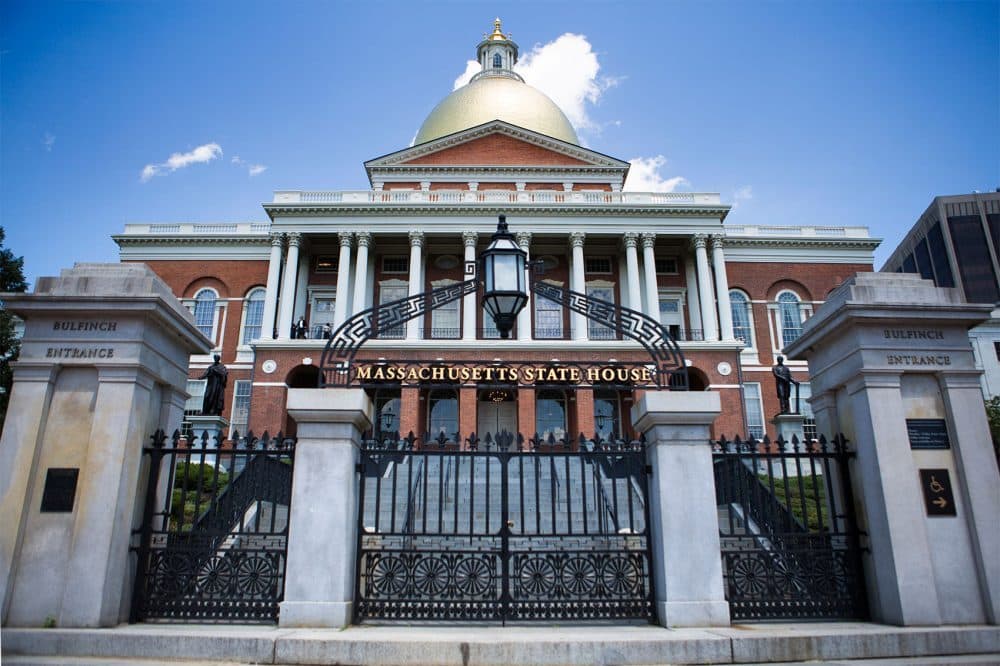Advertisement
Where Things Stand With Police Reform On Beacon Hill
Resume
Wednesday is the House’s turn to take up comprehensive police reform legislation. It comes more than a week after the Senate held a marathon overnight session to pass its own version of the bill.
With 217 amendments in the hopper, the house could extend debate over two days. House leaders have set aside Thursday to continue debate if needed.
Much of the debate in the senate took place between midnight and 4 a.m. last Tuesday. It’s unlikely the House will pull an all-nighter, given the criticism leveled at the Senate for taking a final vote just before the sun came up.
The demand for police reform has intensified nationwide following several high-profile deaths of Black individuals in other states in recent months. Thousands of people protested in cities all around the country, including Boston, to demand reform.
Certifying Officers
It appears the House members, senators, and Gov. Charlie Baker are all in agreement that some sort of statewide Police Officer Standards and Training (POST) system be created which would certify — or, in essence, issue licenses to — police officers. Should the commission determine an officer isn't living up to those standards, it could decertify that person, which would make them ineligible to continue serving in law enforcement.
The two chambers differ on exactly how the commission would be structured, with the House calling for a seven-member panel made up of two appointees each by the governor and attorney general, as well as joint appointments that must include an appointee selected by the state’s largest police union. The Senate calls for a 14-member panel set up within the Executive Office of Public Safety.
What remains to be seen is how many other changes to policing will be made by the legislature.
Changing Qualified Immunity
As it was in the Senate, a good deal of the House debate will focus on qualified immunity, a long-established doctrine that shields public servants, including police officers, from facing civil suits for actions committed while on the job.
Police chiefs and unions have vehemently opposed making changes to qualified immunity, saying it protects officers and their families from frivolous lawsuits. They also fear altering the doctrine would dissuade people from entering law enforcement as a career.
Advocates for changing or removing qualified immunity say doing so would hold police officers accountable for their actions, arguing accountability is at the heart of any sort of reform.
The Senate bill limits the use of qualified immunity by permitting civil lawsuits to go forward if an officer should have reasonably known their actions violated the law, instead of requiring clear proof that laws were broken. The House proposal isn’t as broad, requiring that an officer must be decertified before immunity could be revoked.
Hearing From Advocates
Lawmakers have been hearing from both sides of the police reform issue in advance of debate.
Dozens of police chiefs from all over the state gathered in the parking lot of a Framingham movie theater Tuesday morning to lambaste both bills.
“These bills are not a response to any current situation in Massachusetts,” said Jeff Farnsworth, Hampden Chief of Police and president of the Massachusetts Chiefs of Police Association. “If the legislature believes that there are these types of issues in Massachusetts, they need to reach out to their law enforcement leaders and point them out to us and discuss them with us to come to some type of equitable bill that will address both the safety of our residents and any perceived issues."
While the chiefs and police unions have been urging lawmakers to put the brakes on broad reforms, advocates contend now is the time to make changes, given the outcry from protesters.
“There really is an opportunity for courage here,” said Carol Rose, executive director of the American Civil Liberties Union of Massachusetts. “I would just say for all of the elected officials who say that they're too afraid to take on the police unions because they're fearful of the police unions, imagine how fearful the Black and brown people on the street are whose rights are violated. So I think it's time. I think the people in the commonwealth and in this country have have risen up and literally taken to the streets during a pandemic, to say that they want structural reform, to hold police accountable.”
Timing
Once the House finishes its version of the bill, any differences with the Senate will need to be worked out in a conference committee. But that will have to be done soon, as the legislative session is scheduled to end on July 31.
The two chambers could decide to suspend their rules and continue negotiating beyond the deadline, but they have been reluctant to do that in years past, and are likely to uphold the precedent.
This segment aired on July 22, 2020.
